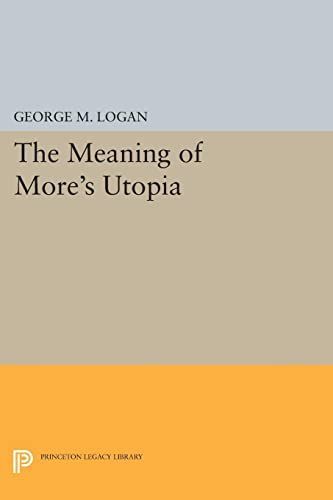
The Meaning of More's Utopia
Examining its relation to ancient and Renaissance political thought, George M. Logan sees Thomas More's Utopia whole, in all its ironic complexity. He finds that the book is not primarily a prescriptive work that restates the ideals of Christian humanism or warns against radical idealism, but an exploration of a particular method of political study and the implications of that method for normative theory. Originally published in 1983. The Princeton Legacy Library uses the latest print-on-demand technology to again make available previously out-of-print books from the distinguished backlist of Princeton University Press. These editions preserve the original texts of these important books while presenting them in durable paperback and hardcover editions. The goal of the Princeton Legacy Library is to vastly increase access to the rich scholarly heritage found in the thousands of books published by Princeton University Press since its founding in 1905.